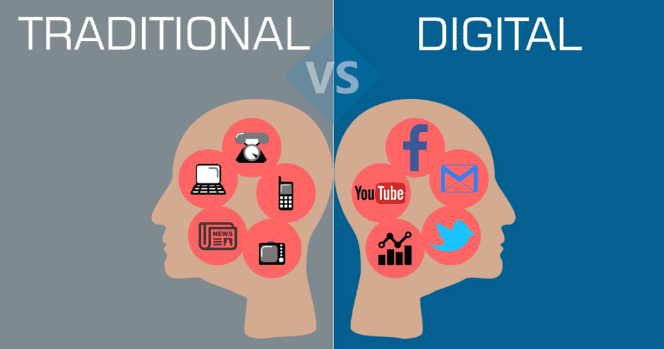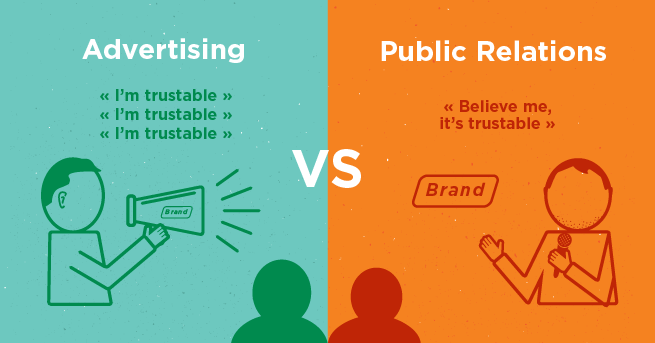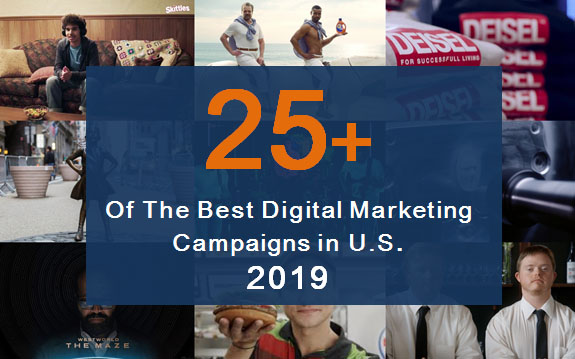What Is Digital PR? And How Can It Improve Your Brand’s Presence?
Digital PR | Jun 29, 2019
We’re in the midst of a digital revolution. It seems like almost every day there’s something new coming out, and every once in a while, that something makes an especially big splash. This affects practically every industry, and that’s true for marketing, too.
Outbound marketing is out while inbound marketing is in. Direct mails have been replaced by emails. Social media networks have, in many ways, replaced socializing itself. So, it’s axiomatic to think that ‘old’ means ineffective and outdated.
But that is a massive oversimplification…
Focusing on public relations (PR), it might seem like a throwback to old time, but that doesn’t make it any less powerful today. PR can still be used. The trick is to combine it seamlessly with new digital tactics and channels to reach the new “Digital or Online PR.
But let’s not put the cart before the horse…
Before diving into using PR, let’s make sure we’re clear on exactly what digital PR means, and why it’s still a really big deal.
What Is Online PR?
First, It’s Important to Define What Is Traditional Public Relation…
In 2007, Ströh defines public relations as “the umbrella function that manages the communication between an organization and its publics to build and enhance healthy relationships to the benefit of all parties involved.”
In 2009, Center and Broom define Public relations as “the management function that identifies, establishes and maintains mutually beneficial relationships between an organization and the public on whom its success or failure depends.”

The Difference Between Online PR and Digital PR?
Concerning Online PR…
When you think of digital/online PR, you might think of submitting press releases digitally. But online PR has evolved into much more than that. It’s very similar, in some ways, to traditional PR in the sense that it’s about influencing people rather than acquiring placement for brand content. This influence could result in a story in a magazine, newspaper or blog. Also, it could result in another online pick-up, including by social media influencers.
But online PR includes a wide range of other activities that help brands/businesses reach a wider audience digitally, activities with no need for a big book of traditional press contacts. Rather than, it requires asking new questions like, how does your business rank in Google? Are you publishing regularly across your website and other channels — in different forms that can be repurposed and repackaged easily online?
So, simply digital/online PR is a powerful strategy which can improve a brand’s online presence and visibility by aligning PR with SEO, inbound marketing and lead generation.
What’s the Difference Between Digital Marketing and Digital PR?
When it comes to digital PR and digital marketing, people are often confused by the roles that each play. While both do share many similarities, there are some key differences that set them apart as follows:
- Goals: Digital marketing is focused specifically on sales and direct revenue, while digital PR is focused on creating a positive reputation and impression of your brand.
- Target Audiences: Digital marketing aims to reach current or potential customers, whereas digital PR is all about maintaining positive relationships with anyone who has an interest in the brand/organization. This covers a broader audience across customers and media, to shareholders and employees.
- Activities/Tactics: Digital marketing generally covers promotional, direct marketing and advertising; whereas digital PR is focused mainly on reputation management through generating positive media coverage and communication with stakeholders.
- Business ROI: It is usually more difficult to measure ROI for digital PR consulting than it is for digital marketing because it’s harder to demonstrate a change in perception or beliefs, as opposed to direct sales.
- Longevity: Digital marketing is a relatively short term activity, whereas digital PR reaps its benefits over a longer period of time.

What’s the Difference Between Digital Marketing/Advertising and Digital PR?
How Can Online PR Benefit Your Brand?
A focused digital PR campaign can make a big difference in building your online identity and what makes your brand unique, improve your online presence and brand awareness.
Here are some of the ways digital/online PR can benefit your brand:
- Increase Your Brand Exposure: By placing your content in front of a new audience. One way to achieve this goal is to partner with other brands and bloggers.
- Improve Your Brand Credibility: Using influencer marketing can add credibility to your product. The positive mention by an influencer can have an exponential effect on consumer perception of your brand.
- Boost Traffic to Your Website: As your brand is mentioned online on a more frequent basis and in many different places, more and more people will start to visit your site.
- Improve Your SEO: When your content is published on high authority websites that link to your website, your SEO ranking will improve and this will also improve your website traffic and leads/sales.
- Generate Leads and Sales: By using this strategy, your brand will be mentioned more frequently in front of interested target audiences which will generate more leads from some of the people who have visited your website, ultimately also leading to more sales.
- Expand the Ability to Track ROI: Thanks to analysis tools such a Google Analytics, Facebook Analytics, etc, it became easier to track the digital PR ROI. You can track the number of views an article received, the numbers of clicks links within the article received, the numbers of readers converted to leads from the article, and much more.
- Increase Trust and Improve Your Brand Image: As a result of all the above, your target audience will start to hear more and more good things about your brand and see an increased number of positive reviews.
Final Thoughts
Digital Marketing and digital PR are intimately linked and both offer the opportunity to greatly improve upon each other’s successes. By integrating all aspects of digital marketing and PR in one strategy, you create an outstanding cross-channel strategy that can’t be matched.
Moreover, how much time you have available for digital/online PR may be a key factor in whether you decide to do it yourself or to outsource. Remember that, the more digital PR strategies that you use, the more likely you will improve your brand’s reputation and successfully grow your business.





